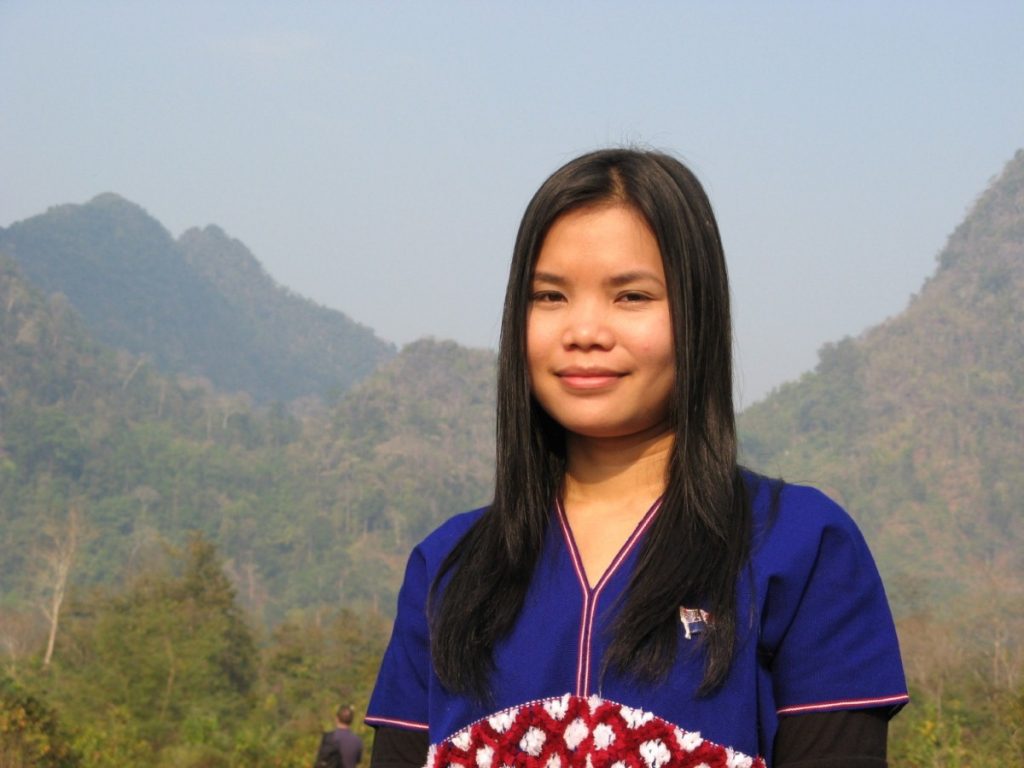Comment: Will William Hague turn hope into action?
In opposition William Hague was a vocal campaigner for the people of Burma. Now he has power, will he follow through?
By Zoya Phan
In 2006, at the invitation of William Hague, I spoke at the Conservative party conference. As someone from the jungles of Burma, who had fled my country aged just 14, and then spent years in a refugee camp, I was very excited about the opportunity.
I remember how I walked onto the huge stage, wearing my ethnic Karen traditional white dress, and saw what seemed like thousands of people in the hall. I knew this was an opportunity to raise awareness about what was going on in my country – I had to seize it.


I talked about how the Burmese army attacked ethnic Karen villages in eastern Burma, shooting children, burning homes, beheading people and raping women, even girls as young as five.
I told delegates: "The opportunity to speak to you today has given me hope. Promoting human rights is not a cultural issue, it is everyone's business and should be a priority for every country."
In 2007 I was invited back again, speaking in the aftermath of the shooting of monks on the streets of Rangoon. The following year, as shadow foreign secretary, William Hague even came to the launch of my autobiography, 'Little Daughter', in the House of Commons.
I think it will be hard for most people to understand how much these events meant. For senior politicians in the UK to invite me to speak, and take the time to offer support, when the world usually seems to be looking the other way, it means a lot to a girl from the jungle. I am aware British MPs won't win many extra votes for supporting democracy in Burma.
When William Hague became foreign secretary after the election I was pleased he continued to support a UN Commission of Inquiry into war crimes and crimes against humanity in Burma. Such an inquiry had been recommended by the United Nations special rapporteur on Burma and is strongly supported by Burma's democracy movement.
The need for such an inquiry has now become one of the main issues facing the international community with regard to Burma. Rigged elections last year have been followed by a new constitution which legalises dictatorship. While two of the most senior generals have retired, their right-hand men are now running the government. And for many ethnic people, they have unleashed hell. Longstanding ceasefire agreements with some armed ethnic groups have been broken. Thousands of Burmese army soldiers have been sent to attack ethnic minority civilian populations, mortar-bombing villages, just as mine was mortar bombed so many years ago.
Every week at Burma Campaign UK we receive more reports of how the Burmese Army is using gang-rape as a weapon of war. Women are being raped, sometimes in front of their husbands and children, and often then mutilated and killed. Thousands of people are used as slave labour to carry military supplies, and forced to walk in front of army columns as human minesweepers. Since the elections in Burma in November last year, around a hundred thousand people have been forced to flee their homes. At the same time torture continues in Burma's jails, with almost 2,000 political prisoners still in jail, and the government denying they even exist.
But to my horror, governments and the United Nations have been virtually silent about what is taking place. Instead they seem to be falling for a charm offensive by the new rebranded dictatorship. They talk about regime promises of economic reform, they talk about how it is easier for diplomats to get visas to visit. They even praised the regime for not following through on its threat to attack Aung San Suu Kyi's supporters if she left the capital. Apparently this is progress. How can they have such short memories? They have been lied to over and over again by the same rulers. They might have taken off their soldiers uniforms, but it is the same people and the same lies. They always dangle the prospect of change round the corner, and the international community then says we must wait and see.
While they wait my people are being slaughtered.
Foreign secretary William Hague now has the chance to turn the hope he gave me into concrete action. A UN Inquiry into war crimes and crimes against humanity can be established by the United Nations General Assembly resolution on Burma, which is passed every year. Officials from the European Union will table the resolution by the end of September. William Hague has the influence to persuade his fellow EU ministers and put text establishing an inquiry into the draft resolution. Then at last there will be some concrete action. A UN inquiry will not only expose the truth about what is happening in Burma, it will also end the dictatorship's perception that they can act with impunity. This will lead to a reduction in human rights abuses taking place, as for the first time they will be afraid of consequences for their actions.
So please foreign secretary William Hague, take this concrete action for my people. You have it in your power to make sure the General Assembly establishes a UN inquiry. You have given me hope. Now please turn hope into action.
Zoya Phan is campaigns manager at Burma Campaign UK. Her autobiography is published as 'Undaunted' in the USA, and 'Little Daughter' in the rest of the world. You can watch her 2006 speeech to the Conservative party conference here and her 2007 speech here.
The opinions in politics.co.uk's Comment and Analysis section are those of the author and are no reflection of the views of the website or its owners.

